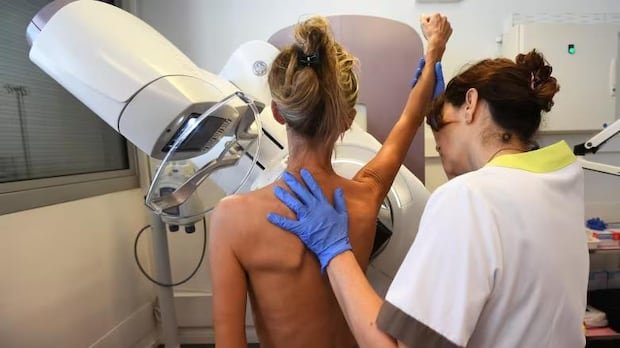Quebec’s national institute for health and social services, INESSS, has recommended the gradual extension of the breast cancer screening program to include women aged 45 to 49. The proposal comes after a study commissioned by Quebec’s Health Ministry to investigate screening options for women over 40.
Currently, Quebec’s program provides mammograms every two years for women aged 50 to 74, covered by the province’s health insurance plan, RAMQ. However, women outside this age range require a referral for a breast X-ray. Concern has been raised over the rising rate of breast cancer among younger women in the past two decades, with approximately 20% of women in their 40s undergoing mammograms in 2023.
Dr. Grégoire Bernèche, president of the Association of Radiologists in Quebec (ARQ), highlighted the increased risk of breast cancer among 40 to 49-year-olds, emphasizing the need for earlier screening due to the escalating cases of early-onset cancer.
Expanding the screening program to include women aged 45 to 49 would incur an estimated cost of $177 million over five years, according to the INESSS report. Karine-Iseult Ippersiel, President and CEO of the Quebec Breast Cancer Foundation, emphasized that early detection could prevent more aggressive cancers, resulting in lower costs, less invasive treatment, and higher survival rates.
The Quebec Health Ministry welcomed the report and indicated that it would soon release its position, focusing on prioritizing prevention for groups at higher risk of developing cancer. However, to implement the changes effectively, the entire breast cancer screening program in Quebec needs upgrading, as highlighted by the INESSS.
The institute warned about the high recall rates in Quebec following false positive results, which could increase with the inclusion of younger women due to denser breast tissue. Addressing long wait times for mammograms and staffing shortages is crucial, as delays are evident at every stage of care in the Quebec system.
While there are concerns about the system’s capacity to handle additional screening, Ippersiel suggested using individual risk factors rather than strict age brackets for program eligibility. The Quebec Breast Cancer Foundation has supported the development of a risk-assessment tool combining a saliva test and survey to identify women at higher risk of developing breast cancer, with hopes of expanding this technology across Quebec for early screening of high-risk individuals.


